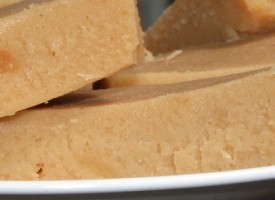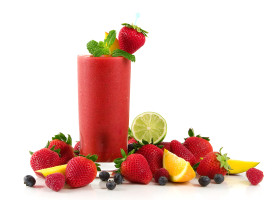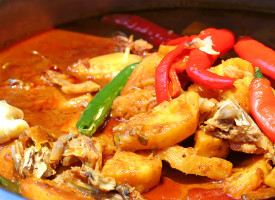Pakistan is one country that seems to have taken the phrase “Breakfast like a King” literally to heart. From urban centers to rural outskirts, privileged families to struggling households, and low-calorie diets to binge, unapologetic indulgence, breakfasts across the country are something to behold. They are a treat for the taste buds, and a feast for many. Whatever the situation, the quantity, quality and variety of the menu are certainly fit for royalty!
The spicy cuisine of the subcontinent with its Qormas, Tikkas and Biryani’s is much celebrated around the world. This is because the dishes that originate here possess a unique flavor that cannot be found in any other ones. This is courtesy of the assortment of herbs and spices that go into the making of the tantalizing fare. The resultant fragrant aroma and impeccable taste is also a testimony to the culinary expertise of the locals.
But while all the gushing foreign tales of deliciousness are justified, these narratives sometimes seem to neglect the foods that grace our tables and dastarkhwaans at breakfast. When it comes to items for the most important meal of the day, Pakistani’s can testify that these are just as scrumptious; if not more!
If roti’s are considered a must-have for lunch and dinner, parathas have their own special place at the heart of desi cuisine. These are considered a staple food in the morning, and an essential part of the first meal of the day. Flaky, crispy and oh-so-fatteningly-good, these greased pieces of heavenly excess are layered and fried to perfection. And it doesn’t have to stop there for those looking for an even more gratifying experience with the bread. Some people prefer to stuff the parathas right up with aloo (mashed potatoes with seasoning), paneer (cottage cheese), gobhi (cauliflower or cabbage), qeema (minced meat), dal (lentils) or basically any and every kind of filling that you can think of. There is thus an explosion of delish flavor in your mouth with each bite. And with all the room to improvise, parathas are the absolutely perfect food for crunchers and chewers alike!

What pancakes are to the west, parathas and puri’s are to us! Puri’s are the puffy, deep-fried and lighter version of the aforementioned parathas, and a particularly favorite breakfast item. These are mostly eaten along with Halwa, which is a sweet dish commonly made of either carrots or semolina and garnished with nuts and all kinds of dried fruits. The combination is so celebrated around the country that the meal is altogether called Halwa puri. The puri’s are also eaten with channas, which is a fare made with chickpeas. Along with the Halwa, these three together comprise a hearty breakfast.
Eggs are consumed in a lot of forms at breakfast, but the most common ways are hard-boiled, plain fried or scrambled. Khagina is our type of scrambled eggs with tomatoes, green peppers a nd spices thrown in for good measure. Pakistani’s have their own spin on omelets as well. While most cultures stop at tossing in just a few chopped vegetables into the fluffy mixture of beaten eggs, we go the extra mile. Cheese, coriander, onions, tomatoes, mushrooms, green chili, spices and pretty much anything and everything can and does go into the omelet. The resultant golden goodness is bordered by dark fringes, and is served either open or folded, depending on the consumer’s preference.
nd spices thrown in for good measure. Pakistani’s have their own spin on omelets as well. While most cultures stop at tossing in just a few chopped vegetables into the fluffy mixture of beaten eggs, we go the extra mile. Cheese, coriander, onions, tomatoes, mushrooms, green chili, spices and pretty much anything and everything can and does go into the omelet. The resultant golden goodness is bordered by dark fringes, and is served either open or folded, depending on the consumer’s preference.
 Glasses of plain or flavored milk, along with milkshakes and smoothies made with a staggering variety of fruits, are a common sight at many Pakistani breakfasts. Coffee or green and other herbal teas are also not unheard of when it comes to the meal. But the most welcome a.m. beverage of all is the dhoodhpati; it is consumed in huge amounts across the country by people of every age, class and social status. It is the creamier (and dare I say yummier!) cousin of the more ubiquitous black tea. Unlike other milk teas, this particular kind is brewed directly in the milk instead of first boiling the leaves or teabag in water and simply adding the milk for taste later. It also often has cardamom or cinnamon thrown and infused into the blend, and more often than not has generous helpings of sugar to boot. But when it comes to waking you right up in the morning, there is nothing better than a refreshing cup of this amazing concoction!
Glasses of plain or flavored milk, along with milkshakes and smoothies made with a staggering variety of fruits, are a common sight at many Pakistani breakfasts. Coffee or green and other herbal teas are also not unheard of when it comes to the meal. But the most welcome a.m. beverage of all is the dhoodhpati; it is consumed in huge amounts across the country by people of every age, class and social status. It is the creamier (and dare I say yummier!) cousin of the more ubiquitous black tea. Unlike other milk teas, this particular kind is brewed directly in the milk instead of first boiling the leaves or teabag in water and simply adding the milk for taste later. It also often has cardamom or cinnamon thrown and infused into the blend, and more often than not has generous helpings of sugar to boot. But when it comes to waking you right up in the morning, there is nothing better than a refreshing cup of this amazing concoction!
 Some other favorite breakfast items of the locals include Nihari and Siri paye. These are especially popular in the renowned food streets of Lahore. Nihari is a spicy curry with extremely tender bits of beef or chicken slowly cooked in thick gravy. Siri paye refers to a dish made with the head and hooves of a goat, cow or lamb, and has a gooey texture. These are consumed with a tandoori naan, which is leavened bread cooked in a clay oven. As is evident, Pakistani’s have no qualms about having meat for breakfast. There is also perhaps a deeper logic behind having these two for breakfast as both are quite heavy on the stomach. They’re simply too good to boycott, so the next best thing is to eat them first thing in the morning. And have the whole day to work them off!
Some other favorite breakfast items of the locals include Nihari and Siri paye. These are especially popular in the renowned food streets of Lahore. Nihari is a spicy curry with extremely tender bits of beef or chicken slowly cooked in thick gravy. Siri paye refers to a dish made with the head and hooves of a goat, cow or lamb, and has a gooey texture. These are consumed with a tandoori naan, which is leavened bread cooked in a clay oven. As is evident, Pakistani’s have no qualms about having meat for breakfast. There is also perhaps a deeper logic behind having these two for breakfast as both are quite heavy on the stomach. They’re simply too good to boycott, so the next best thing is to eat them first thing in the morning. And have the whole day to work them off!
The delectable set of choices around here does not end with just savory foods. Breakfast items served on special occasions also include  Sheer Khorma, which is basically a vermicelli pudding garnished with pistachios, raisins or almonds. Shahi Tukray is another sweet dish that fits the bill, and is essentially fried bread cooked in a syrupy milk mixture and topped off with cheese or dried fruits. These are in contrast to the spicy, salty or crispy foodstuff commonly found and consumed at a typical Pakistani breakfast.
Sheer Khorma, which is basically a vermicelli pudding garnished with pistachios, raisins or almonds. Shahi Tukray is another sweet dish that fits the bill, and is essentially fried bread cooked in a syrupy milk mixture and topped off with cheese or dried fruits. These are in contrast to the spicy, salty or crispy foodstuff commonly found and consumed at a typical Pakistani breakfast.
It should be noted that just because we have our own cuisine doesn’t mean we don’t enjoy a variety of others. Croissants, scones, jams, waffles, pancakes, buns and French toasts along with hot chocolate, lattes and cappuccinos are always around for those so inclined. But when you have Pakistani foods around, other kinds really just don’t cut it.








I`m mexican with pakistani husband, and i really felt inlove with all this delicious food, i will never eat anything but pàkistani food.
Very well done, excellent article!!
nice topic and well written
Excellent topic, good attendion to details and clear crisp narration. Well done.
Great job…..!!!! All thumbs up ….lassi was missing:-D
Very well written,welldone
It’s Awesome!!!
can’t stop reading it!!
It was the best thing i have read :D